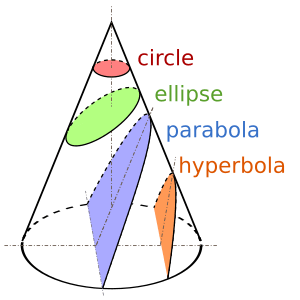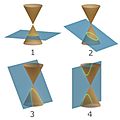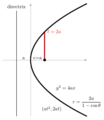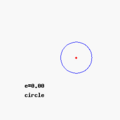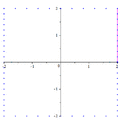Conic section facts for kids
Imagine slicing through a cone with a flat surface, like a piece of paper. The shape you get where the paper cuts the cone is called a conic section. These shapes are very important in geometry and science.
To make it easy, we usually think of a "right circular cone." This means the cone has a perfectly circular base, and its central line (called the axis) goes straight up from the middle of the base at a right angle.
What Are Conic Sections?
A conic section is simply the curve you see when a flat surface, called a cutting plane, slices through a cone. Even though we often use a "right circular cone" to explain it, any double cone with a circular cross-section will work.
There are three main types of conic sections:
A circle is a special kind of ellipse. Sometimes, people talk about the circle as a fourth type because it's often simpler to work with than a general ellipse.
History of Conic Sections
People have known about conic sections for a very long time! They were studied at least as far back as 200 BC. A Greek mathematician named Apollonius of Perga (who lived from about 262 BC to 190 BC) wrote a lot about their properties.
These shapes became even more famous when mathematicians realized that they describe how things move in space. For example, the paths that planets take around the Sun are conic sections, usually ellipses.
Images for kids
-
The paraboloid shape of Archeocyathids produces conic sections on rock faces
See also
 In Spanish: Sección cónica para niños
In Spanish: Sección cónica para niños
 | Anna J. Cooper |
 | Mary McLeod Bethune |
 | Lillie Mae Bradford |


